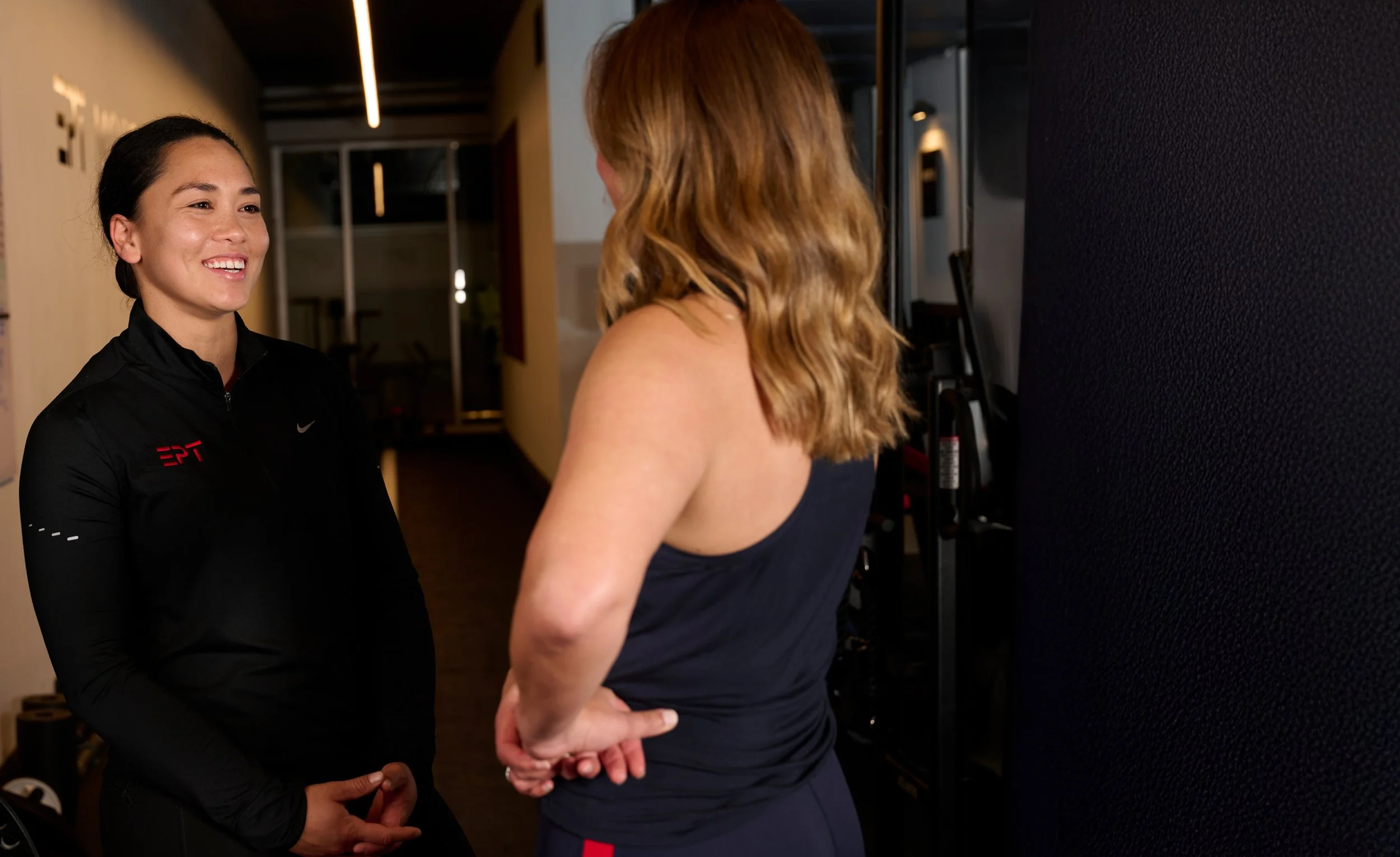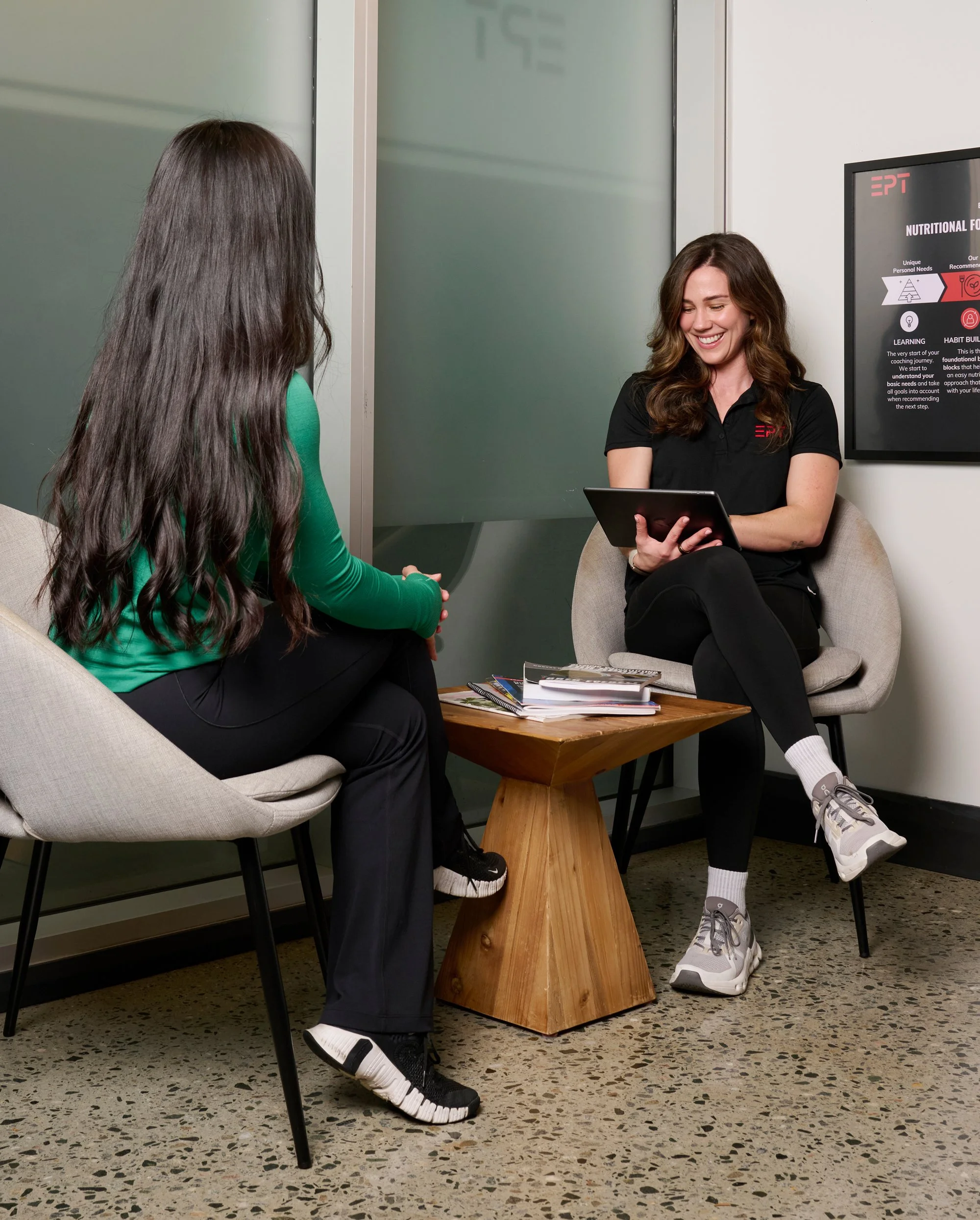
Habits That Stick: Why Small Wins Build Big Change
Big goals are exciting. They capture your imagination and give you something to chase. But when it comes to lasting results, big goals often fail because the foundation beneath them is too fragile. At EPT we teach clients that transformation does not come from one breakthrough moment. It comes from stacking small, repeatable wins until they become automatic.
Most people fail because they try to change everything at once. They overhaul their training, nutrition, sleep, and lifestyle all in a single effort. It feels inspiring for a week, but unsustainable in the long run. The people who succeed are the ones who master small habits that build momentum.
1. The Power of Simple Anchors
When life gets full, complicated routines fall apart. Anchors keep you steady. These are small habits that hold no matter what. They require little effort but deliver consistent returns.
Examples include:
Eating a protein-based breakfast every morning
Walking for ten minutes after lunch
Turning your phone off thirty minutes before bed
Each of these is simple on its own. But when they are repeated consistently, they improve energy, mood, and recovery. Over time, these anchors create a strong base for more ambitious goals.
One of our clients, a consultant constantly on the road, committed to one anchor: protein at breakfast. Within weeks her energy improved, cravings disappeared, and she found it easier to stay consistent with training. That one small win set the stage for larger changes.
2. Why Small Wins Create Big Change
The human brain thrives on progress, not perfection. When you succeed at a small habit consistently, confidence grows. That confidence makes it easier to add the next habit. Over time, the stack of wins becomes a lifestyle.
Contrast that with the all-or-nothing approach. Miss one workout, break one rule, and the entire system collapses. Small wins avoid this trap by keeping progress alive, even in difficult weeks.
3. How to Build Habits That Last
Habits do not stick by chance. They stick when they are:
Specific: “Eat protein at breakfast” works better than “eat healthier.”
Realistic: Start with actions that can survive a stressful week.
Repeatable: Anchor them to existing routines like meals or bedtime.
At EPT we often start clients with one or two habits, then build over time. Once those are automatic, we layer in the next. This process ensures change is sustainable rather than overwhelming.
4. Turning Habits Into Identity
The ultimate goal is for habits to become part of who you are, not just things you do. When you see yourself as someone who trains three times per week, that identity drives the action. When you see yourself as someone who eats for performance, food choices align automatically.
One client, a father of two, began with a simple commitment to walk daily with his kids after dinner. At first it was just a habit. Over time it became part of his identity as a parent who models health. That identity made it easier to train consistently, fuel better, and recover properly.
Big changes do not come from radical overhauls. They come from mastering small habits that stick.
At EPT we coach clients to focus on the anchors that hold when life gets busy. From there, momentum builds. Progress compounds. And what once felt difficult becomes automatic.
Habits are not just about behaviour. They are about building an identity that matches your ambition. Once that identity is in place, change is no longer forced. It is natural.


